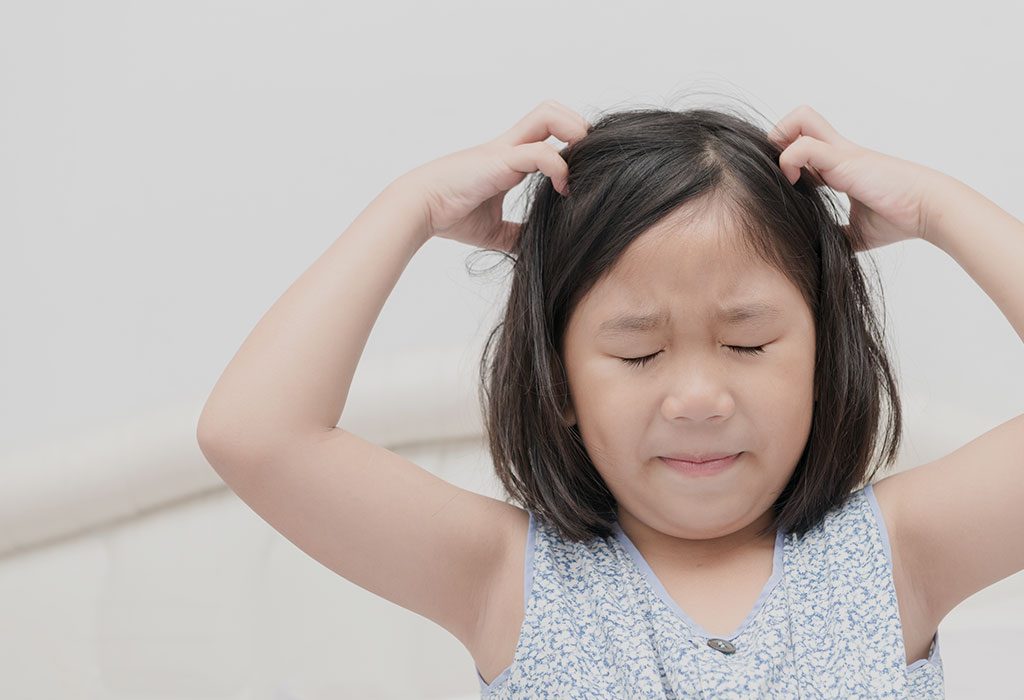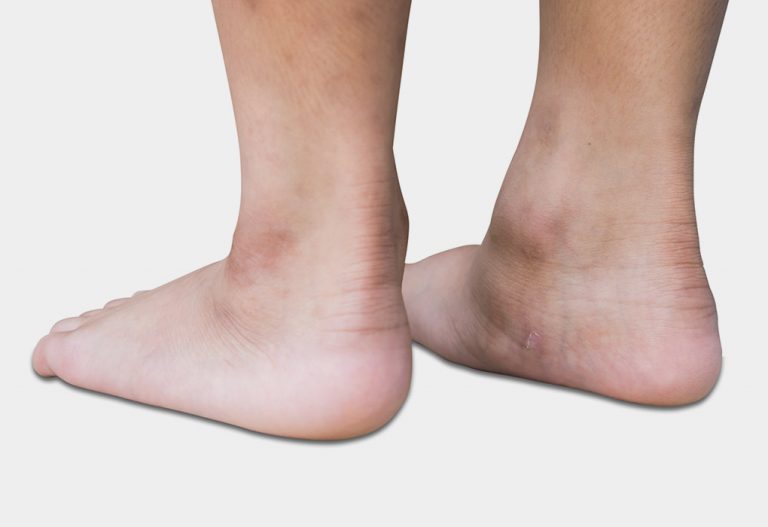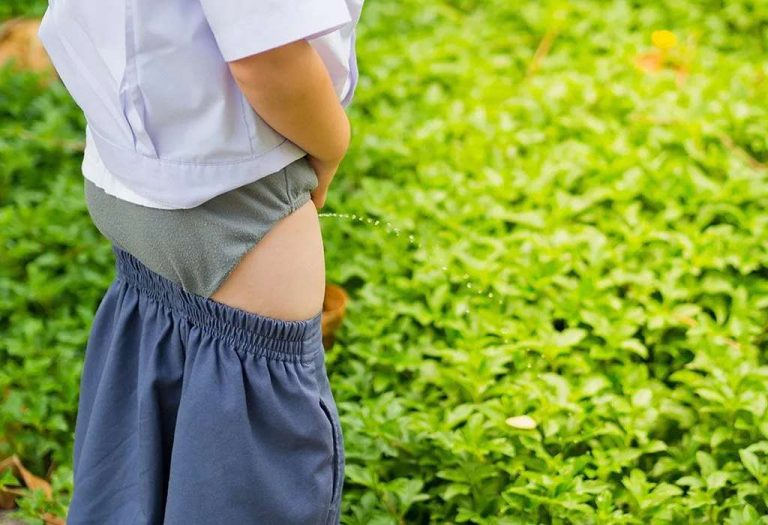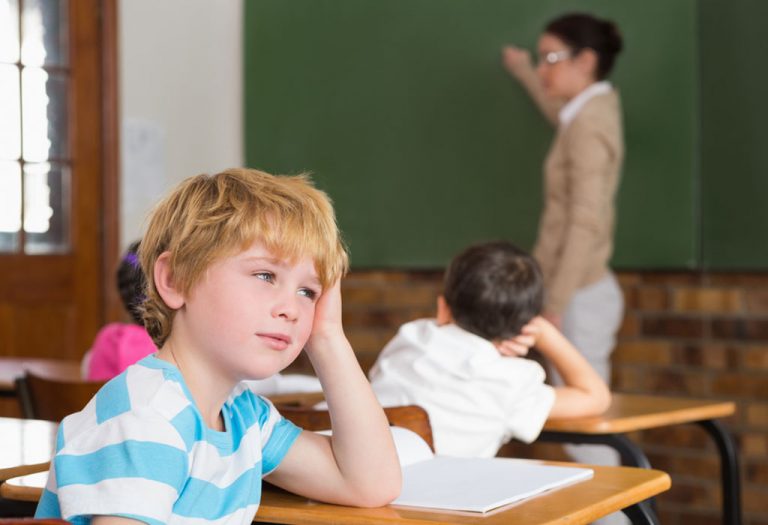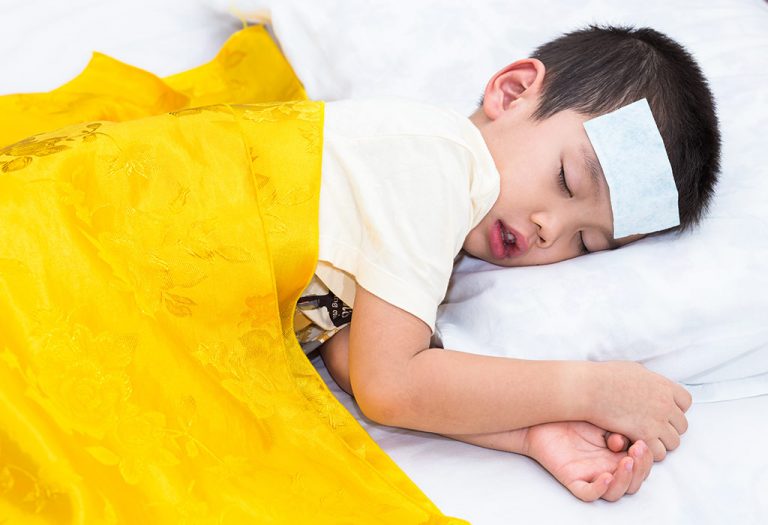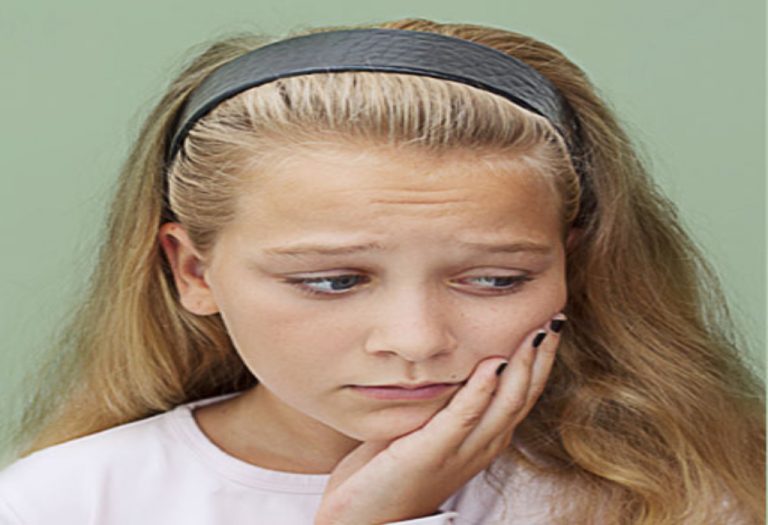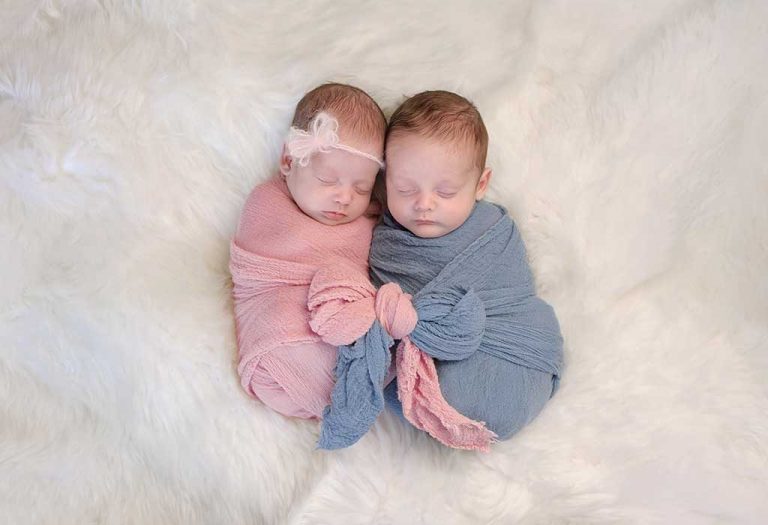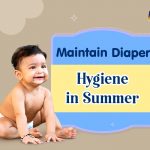Scalp Problems in Children – Types, Causes and Treatment

Well, not only your child’s body but his scalp may be the harbouring ground for various kinds of medical conditions or ailments too. Is your kid suffering from any kind of scalp problem or are you one of those parents who is just intrigued to know about various medical issues that may affect your child? Whatever may be the case, reading the following article may help you to know about various kinds of scalp problems that may affect your child; we shall also talk about its causes and various kinds of treatment options that may be available to treat the same.
What Exactly Are Scalp Problems in Kids?
Your kid’s scalp not only has dense hair follicles but also secretes a lot of sebum. The warm and sweaty environment at the base of your hair is the apt place for various kinds of parasites to be harboured. Your kid’s delicate and sensitive scalp may also get exposed to harmful chemicals, dust, pollution etc., causing many kinds of children’s scalp conditions.
Different Types of Scalp Conditions in Children
Here we shall be discussing different types of scalp conditions that may affect your child:
1. Psoriasis
Psoriasis is a kind of skin infection that can make its way anywhere on the skin; it is marked by a rapid proliferation of skin cells. When it affects the scalp, it is known as scalp psoriasis.
2. Seborrheic Eczema
Child scalp eczema is a kind of condition in which your child may have itchy and greasy dandruff or scales on his scalp. Stress and seasonal changes are the main triggers for this condition. However, rest assured it is not contagious.
3. Folliculitis
This condition may appear like acne on the scalp with small red pus-filled bumps. This bacterial infection occurs due to excessive sweating, use of strong chemical products on the scalp or other such issues.
4. Alopecia
Also known as hair loss, this condition may be due to genetic, hormonal, medical or other such issues. The doctor may like to conduct various tests to establish the real cause.
5. Ringworm Infection of the Scalp (Tinea Capitis)
Tinea capitis is a fungal infection that kids and sometimes adults too may suffer from. Your kid may develop a rash, which may be scaly and painful. It may sometimes lead to enlarged lymph nodes too.
6. Cysts
This condition usually occurs due to genetic reasons. Your kid may feel these small bumps on his head while combing his hair. They are usually not a cause of great concern.
7. Lichen Planus
This is believed to an autoimmune disease, which may result from various reasons including genetics and stress. Your kid may have itchy purplish or reddish bumps on his scalp.
8. Impetigo
Impetigo is a bacterial infection that can occur on the scalp, especially in children with cuts, scratches, or pre-existing skin conditions. It presents as red sores or blisters that may burst, ooze, and form a yellowish-brown crust.
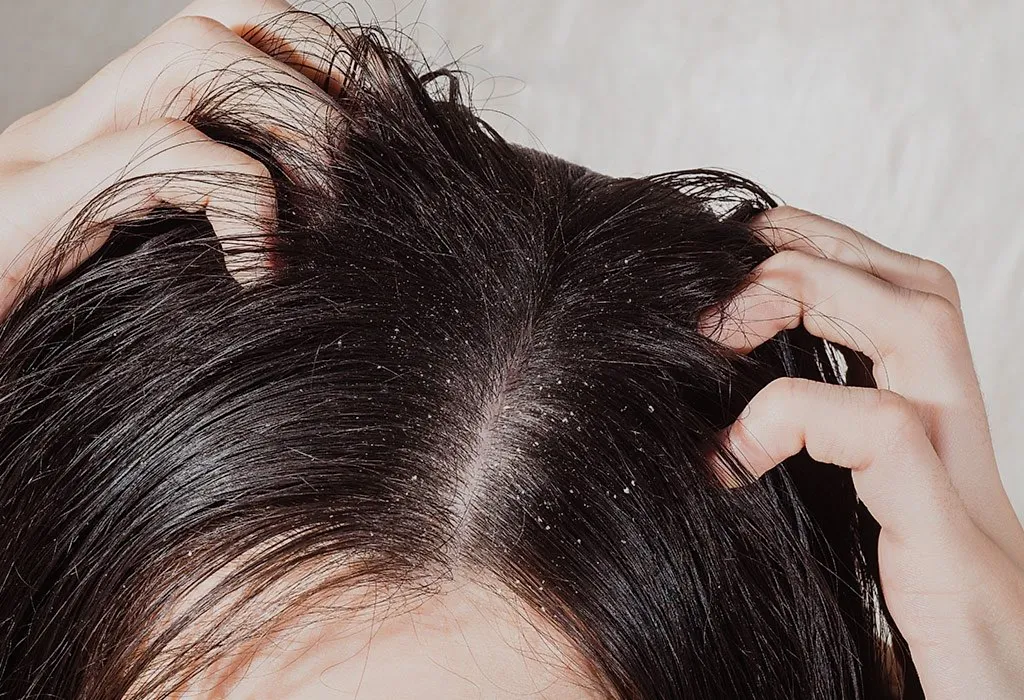
Causes of Scalp Problems in a Child
Here are some of the causes of scalp problems in children:
- An unhealthy diet may cause scalp problems in children.
- Dry scalp or excessive sweating may cause scalp issues.
- Stress is one of the main reasons for scalp problems.
- Some scalp problems may be contagious and may occur by sharing hats, bedding, combs, hairbands etc.
- Head lice may cause scalp issues.
- Not maintaining proper hygiene or not taking good care of the scalp may result in scalp troubles.
- Extreme dry weather conditions
- Bacterial infections
- Fungal infections
- Sometimes problems with the immunity system may cause scalp issues such as psoriasis.
- Dust or pollen grains may cause scalp issues in kids too.
- Sometimes scalp issues may result due to hereditary causes.
Symptoms of Scalp Conditions in Children
How would you identify whether or not your kid is suffering from any kind of scalp problem? Well, here we have some symptoms listed, which may help you in determining various scalp ailments that your kid may be suffering from:
- Enlarged or swollen lymph nodes
- Grey or white flakes on the scalp
- Small pus-filled bumps around the hair follicles of your child
- Greasy and yellow greasy scales on the scalp
- Rings or red inflamed spots on the scalp
- Your child may experience a burning sensation on his scalp
- Small bumps on his head, face, neck or hands
- Inflammation of the scalp
- Dry scalp
- Flaky and itchy scalp
- Zigzag burrows, which may be due to mites
- Bald patches on the scalp
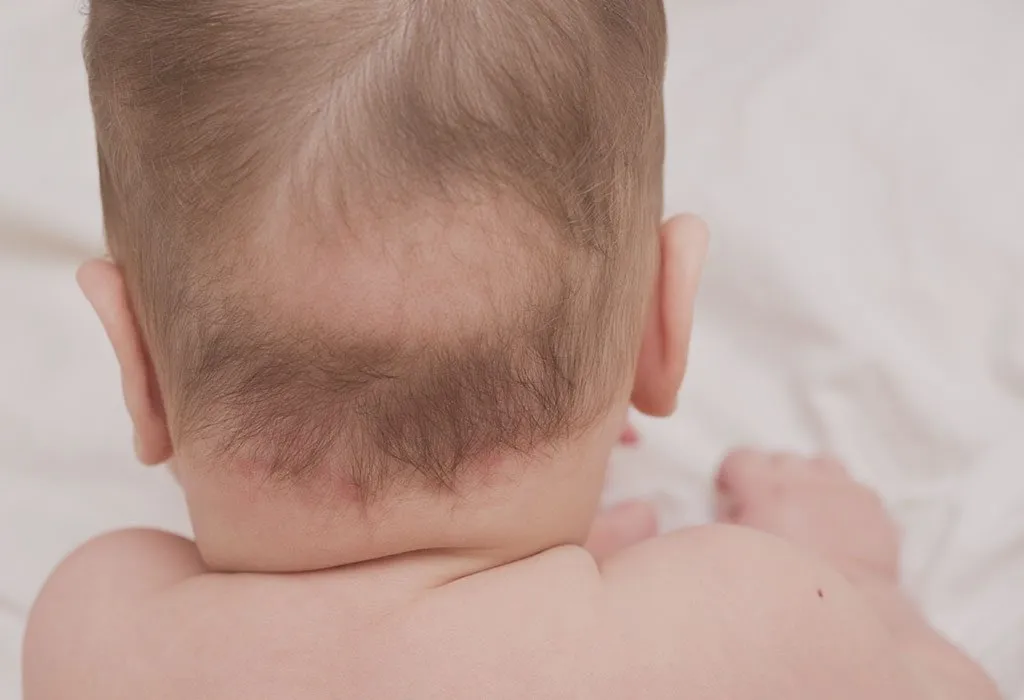
How Are Scalp Problems Diagnosed?
As soon as you register any of the above-mentioned symptoms of kids dry scalp, you should take your child to the doctor to diagnose any possible scalp problems. Most of the scalp problems may get diagnosed by looking at them and your doctor may examine your kid’s scalp, hair or head to establish the same. However, if physical symptoms may not be enough to diagnose the problem, your doctor may ask you to run some tests for your kid, which may include blood tests, checking for nutritional deficiency, testing for hormonal levels etc.
Treatment for Kids’ Scalp Problems
Following are some treatment measures that may help in treating scalp problems in kids:
1. Maintaining Good Hygiene
Any kind of scalp infection in a child may be easily managed by following good hygiene. Ask your kid to wash his hair regularly, especially after playing or sweating profusely. Do not let your kid scratch his scalp and keep separate comb for your kid.
2. Avoid the Triggers
Excessive sweating, dust, chemical hair products, dander etc are some of the possible triggers of scalp lesions in children. As much as possible, help your kid stay away from the triggers or limit the exposure.
3. Medication
If the above two do not work, you may opt for medical treatment and that may involve the use of gels, creams and medicated shampoos that may be prescribed by your doctor for your child’s dry scalp treatment or other scalp troubles.
FAQs
1. How Can You Treat Scalp Dermatitis in Children?
For a child’s itchy scalp, treatment involves using mild, fragrance-free shampoos, avoiding irritants, keeping the scalp moisturized, and, in severe cases, using topical steroids under the guidance of a healthcare professional. Discourage excessive scratching, and consult a doctor if symptoms persist.
2. How Do You Keep Your Child’s Scalp Clean?
For your toddler’s itchy scalp, maintain a clean scalp by washing hair regularly with a mild, child-friendly shampoo, ensuring thorough rinsing, and avoiding harsh products. Keep hair short, discourage sharing personal items, educate about head lice prevention, and conduct periodic scalp checks for abnormalities or changes.
Scalp problems can easily be diagnosed and treated in time. As soon as you establish any kind of scalp issues in your kid, we suggest that you seek your doctor’s advice at the earliest to avoid any further complications.
References/Resources:
1. Scalp Problems; C.S. Mott Children’s Hospital; https://www.mottchildren.org/health-library/aa84397
2. Child Scalp Conditions; The Holborn Hair Scalp Clinic; https://www.stevens-trichology.com/child-scalp-conditions/
3. Tinea capitis; Mount Sinai; https://www.mountsinai.org/health-library/diseases-conditions/tinea-capitis
4. Lichen Planus; Johns Hopkins Medicine; https://www.hopkinsmedicine.org/health/conditions-and-diseases/lichen-planus
5. Alopecia Areata; Nationwide Children’s; https://www.nationwidechildrens.org/conditions/alopecia-areata
6. Dhar. S, Banerjee. R, Agrawal. N, et al.; Psoriasis in children: an insight (Indian Journal of Dermatology); National Library of Medicine; https://www.ncbi.nlm.nih.gov/pmc/articles/PMC3132900/
7. Seborrheic Dermatitis in Children; National Eczema Association; https://nationaleczema.org/eczema/children/seborrheic-dermatitis/
Also Read:
Alopecia Areata in Children
Premature White and Grey Hair in Kids
How to Care for Your Child’s Curly Hair?
Home Remedies for Head Lice in Kids



